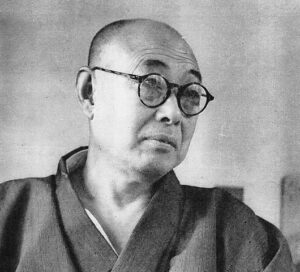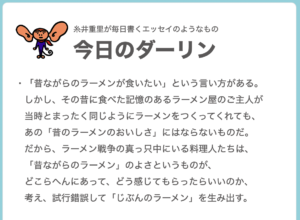Reading Japanese is hard…until it isn’t. Finding the right material for that period of time when you’re moving from advanced beginner to intermediate is critical. You need to find something that’s not going to make you want to defenestrate the text itself or the device you’re reading it on but that will at the same time push you to learn new words and phrases.
Looking back on my own experience, I read the Murakami collection “Dead Heat on a Merry-go-round” while I was on a spring break trip. I think that was the first real book I read on my own, and it was just about the appropriate level. I could basically understand what was going on, and being on a trip meant I often just read past things I didn’t understand fully, trying to get a sense of the meaning from context. This is an important skill to practice, something you’re likely doing in your native language without realizing it.
I jumped into a couple of novels after that with the help of a professor, and I’m glad I had that help because there’s something about the first few pages of Japanese 純文学 (junbungaku, “pure literature”) that’s fairly dense and difficult. The text often settles down after this.
There are places to find the texts you need, online and for free. Here are a few reliable resources:
NHK’s Easy Japanese News

The news! But easy! For example, instead of 少数民族 (shōsū minzoku, minorities), the headline for this article uses 人口が少ない民族 (jinkō ga sukunai minzoku,people with a small population). There’s also a feature to turn furigana off and on. The bonus is that you’ll be keeping up with the latest news from Japan.
Ogawa Mimei

Someone is determined to upload all of Ogawa Mimei’s writing to Aozora. His stories just keep on popping up on the list of newly added works. They all have furigana and are written in a fairy tale/children’s literature style, so the grammar and vocabulary is relatively simple. We’ve been reading one for the Japanese Reading Group that’s been a lot of fun. Highly recommended.
Itoi Shigesato’s 今日のダーリン

You might recognize Itoi Shigesato as the mind behind Mother (EarthBound). He was also the editor who got Murakami to write the series of super short stories that were collected in 夜のくもざる (Yoru no kumozaru, The Night of the Spider Monkey). He maintains a website ほぼ日刊イトイ新聞 (Hobo nikkan Itoi shimbun, Nearly Daily Itoi Times), which has a short essay on the front which self-destructs each day and is not archived (although it does look like he makes the previous day’s essay available now?). They’re relatively short and pretty casual. The title of the series is 今日のダーリン (Kyō no dārin, Today’s Darling). Worth a read!
Ameblo
Ameblo is Japan’s largest blog network. Recommendations on the top page usually point to active and often illustrated blogs, but you can also search by topic and interest. The best part about these blogs is that you’ll be getting casual, living Japanese, which won’t always be easy to understand but will be useful. Explore! And while you’re at it, why not try creating your own blog?
The real key for any of these is ensuring that you get the repetitions. Having the right reading material matters very little if you’re not actively getting through it. Do whatever it takes (be ruthless) to get those repetitions.

